When I pitched to my editors at Daily Grindhouse a 20 year retrospective of FINAL DESTINATION, I originally thought it was going to be just that. A retrospective. A piece talking about the 20 years of one of my favorite horror franchises (which, sadly, hasn’t had a new entry since 2011) and what it meant to me, possibly relating it to my own experiences with death and mortality. Boy, how I wish that was all I was doing right now.
As I type this, America and the world at large are deep in the coronavirus crisis, as COVID-19, a novel virus and essentially a deeply fatal and highly contagious super-flu, weaves its way around the world, threatening the entire global populace and threatening to shut the entire world down. Literally, the whole world, which is in the midst of a pandemic it hasn’t seen for over a century. It feels silly, at this point, to sing the praises of a fairly recent teen horror classic when all the world is collapsing around me, but, at the same time, the confluence of subject and public event has made me realize just how much this franchise has meant to me and how it’s made me fucking cope with the specter of my own and my loved one’s mortalities.
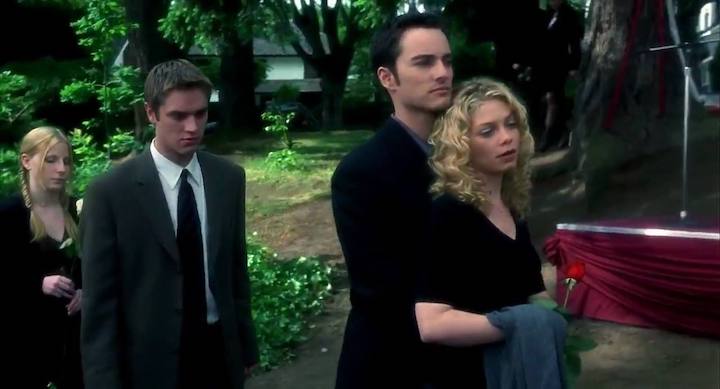
The night I wrote this, I broke down crying at my “day job.” I work at a liquor store in western Massachusetts, helping run and manage night shifts. That’s my “safety” job, the one I do when I am not writing about movies. Deep in our beer cooler, making a list of things to send up from our basement to be stocked, I broke down and began bawling, out of view of customers and coworkers alike, wiping my eyes when I was facing the public but a tear-streaked mess when I was alone. See, if I got COVID-19, I would be fine. I am young and healthy (or healthy enough) and I know I would mostly make it through with, at most, a few days of “fuck my life” discomfort.
But I wasn’t bawling for me. I was bawling for those around me. Those who would be impacted by me should I contract COVID-19. My roommate, who has asthma, and is bettering his life by studying to be a pro bono defense attorney for low income clients. My girlfriend, also asthmatic, deeply in love with performing. My parents. My mother, in her seventies with bronchitis, recovering from a breast cancer scare last year. My father, in his late eighties, who almost died of pneumonia last spring. My parents who I care for, who I am the one doing grocery shopping for. My roommate who has nowhere to go away from me. My girlfriend, who I love with a blazing passion that I can’t adequately describe and who may need someplace to recover should her other partner (we’re poly, and there’s nothing wrong with that) come down with COVID-19. All susceptible to death by the coronavirus if I am not careful not protective of them.
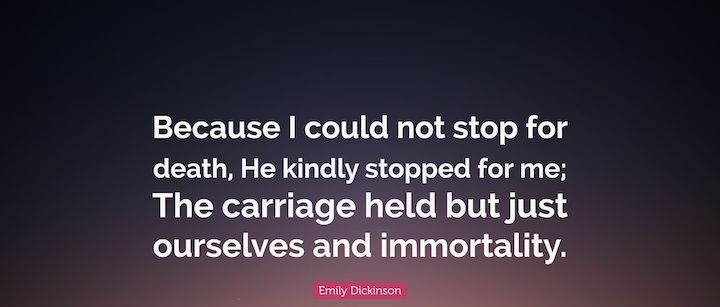
And yet I can’t quarantine. I can’t work from home. I can’t fully “socially distance.” Because they aren’t the only ones whom I need to protect. Because, you see, there are my boys, my cats, my babies, Marmalade and Salem, two little lovebugs obsessed with their daddy. Salem is eight. But Marmalade is 17 and special needs—an elder miracle kitty who nearly died last year of kidney failure and survived, his life prolonged by his will and a saline drip prescribed to him. I have raised him from kittenhood; who would be there for him, to take care of him, when I lost my job? He would likely be ignored, left to rot in shelters, as families ogle sweet little kittens. As you can imagine, the stress of protecting, sometimes amidst opposition, multiple people you love can be heinously crushing.
Death has always been a constant in my life. (Before coronavirus, this would have been the lede in my retrospective that isn’t.) From the youngest parts of life, I have been confronted by mortality, when, barely out of kindergarten, I went to the funeral of my uncle, who fell off a ladder and cracked his head on the sidewalk below. (how’s that for a FINAL DESTINATION sequence for you?) Growing up, I can’t remember a time where someone around me wasn’t involved with death. There were the elderly family friends, who died of old age, of course. But there was also the neighbor, my sister’s friend, who died of asthma. The brother-in-law who hanged himself in his basement. The classmate (with whom I did theater) who murdered another. The aunt who died of skin cancer, the uncle of heart failure, the grandparents—one from diabetes, the other due to Alzheimer’s.
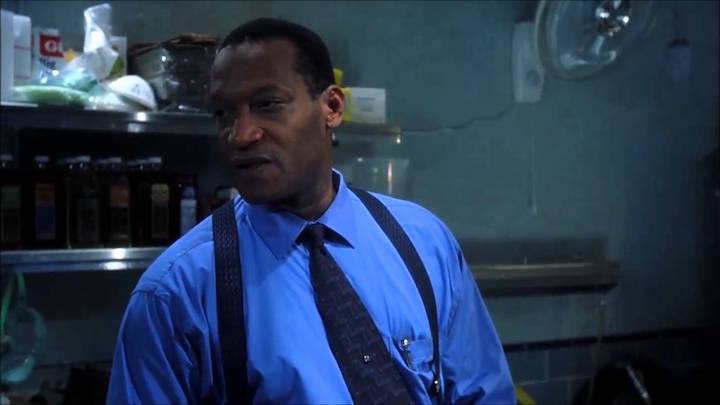
And there was me. I didn’t die, of course. I am here, writing far too much about far too personal stuff, cluttering your movie retrospective. (Trust me, I’ll tie it all together. Eventually.) But I have almost died. Many times over. I nearly choked to death as a baby, not even two-years old. I got run over by a pickup truck. But more than that, there were the times I almost died at my own hand.
I was eight when I first held a knife to my wrist and willed myself to cut. Barely ten before I first knew the feel of a rope around my throat. Most of my life suicidal ideation has plagued me, been a constant hum thrumming under my existence. I’ve written goodbye notes, suffocated myself with pillows, put my lips around bottles of bleach before I was even in double digits. My life has been nothing but a confrontation with mortality since I was barely born. Death has been in my life for almost all my life. Much of it has to do with circumstances that happened to me from a young age, people…not treating me well as I grew up and older. But it led me to knowing death at an age when most kids were barely learning math.
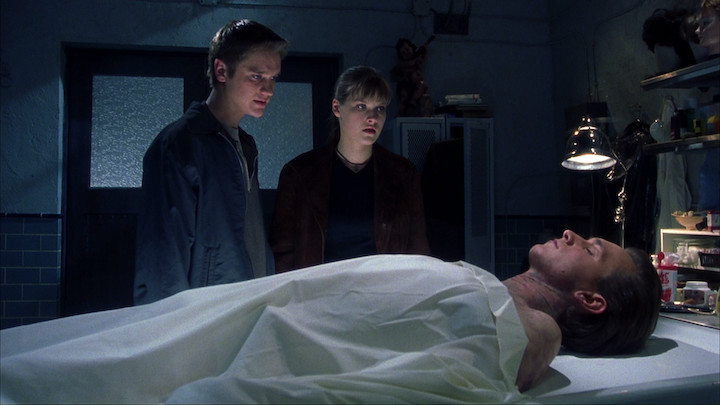
Oh, I forgot. I was talking about a movie here, silly me. What does my boring life story have to do with a popular movie franchise that began at the turn of the century and starred a ‘90s teen heartthrob? Mortality. That’s what. I didn’t realize until I began to write this long, solipsistic, and likely excruciatingly pretentious and self-aggrandizing treatise just how much the FINAL DESTINATION actually meant to me, and how it really is one of my favorite horror film franchises. The first one came out on March 10th, 2000—a few months shy of 17th birthday—debuting with $10 million at the box office, but legging out to a decent ~$50 million final gross, domestic. A new sequel appeared, at a general pace of every three years, since then, at least until FINAL DESTINATION 5 ended the franchise (thus far; a new film written by Marcus Dunstan and Patrick Melton is finally in the works) in 2011.
I saw FINAL DESTINATION opening night, bought the VHS (and then DVD) and have watched it almost any time it appears on TV since. (Pretty much ditto any of the sequels, bar 2009’s abysmally soulless and mechanical fourth entry, THE FINAL DESTINATION.) For those who don’t know, FINAL DESTINATION is about a teenage boy, Alex (Devon Sawa), who has a premonition that the cross-Atlantic flight he and his class are boarding for a senior trip to France will explode. This causes Alex to freak out, getting himself and several classmates and a teacher kicked off in the process. Alex’s vision, however, saves them; not long after, the plane takes off and explodes mid-air. Alex’s psychic prowess has saved them, but only temporarily—soon, the survivors begin to die, one by one, in bizarre accidents that indicate they were never meant to leave that plane.
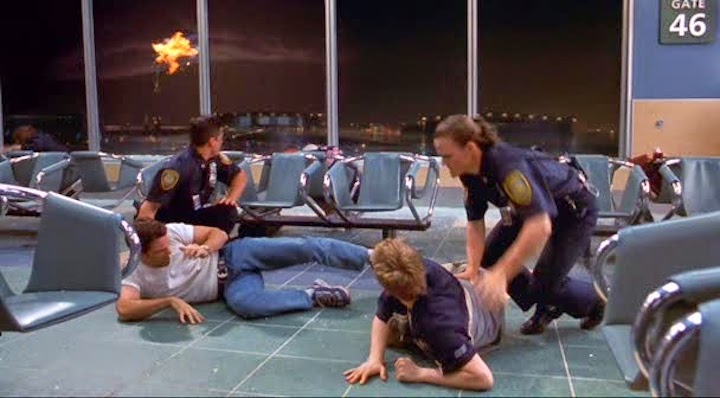
Jeffrey Reddick famously originally wrote his first draft of FINAL DESTINATION as a spec script for The X-Files before refiguring it as a standalone film script, ironically capturing the attention of beloved X-Files duo of writer/producer Glen Morgan and director/producer James Wong, who rewrote it into the, ahem, final form you see. At the time, the movie was dismissed as a slasher film in which the antagonist was Death itself —an invisible force that sweeps through, eliminating teenagers in ghastly manner, often accompanied by the ironically tender strains of John Denver on the soundtrack. Critics unfairly lumped it in with the rest of the post-SCREAM teen horror movement of the late ‘90s, what with its glossy gore and pretty casts and snarky, self-conscious deconstruction of genre.
FINAL DESTINATION always had a little more on its mind than that, however. Outside of a few character surnames, meant to reflect genre legends (a character named Billy Hitchcock. But it would get worse as a character in the fourth entry uses the last name of schlock legend Jim Wynorski) there was little attempt to fit in with the snarky and self-aware tone of its contemporaries, instead indulging in more meaningful, if somewhat superficial, attempts to grapple with the existentialism of mortality. This was a group of young kids, in their prime, the world seemingly ahead of them, struggling with the realization that they aren’t immortal, that anyone can be cut down at any time, that all the hopes and dreams and desires that lay ahead of them may never be realized. They are kids whose innocence gets lost in one spectral swoop.
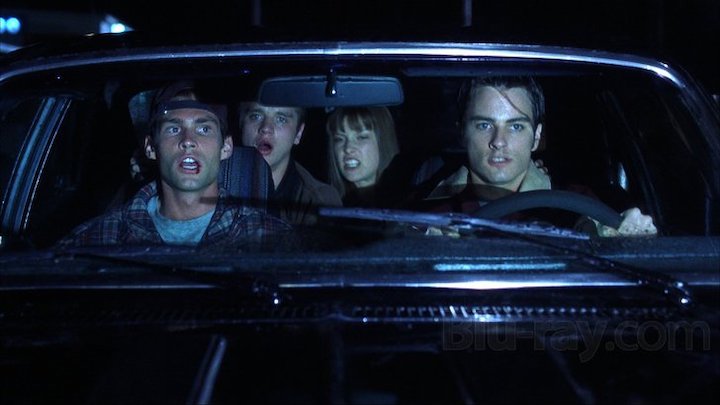
Carter (Kerr Smith) the token aggro jock, attempts to control his own fate, deciding he can stare death in the face and not blink. He nearly gets creamed by a train instead, saved, at the last minute, by our hero, whose interventions have now saved Carter twice. Carter is no longer the posturing tough guy he was earlier in the film. Crying, tear-stained, his pants dark with urine, he’s become a scared child again, having looked down the barrel of his own death. Fate or free will, it doesn’t matter; when your time comes it will come—and even if people intervene, you can only push it off so many times before you lose the hand, as the film’s shock ending makes so abundantly clear.
FINAL DESTINATION was a financial hit that, as I said earlier, spawned a franchise that endured for just over a decade before halting. In the supreme laws of franchises, the sequels got progressively bigger and gnarlier, turning into Grand Guignol splatter cartoons that focused more on the creative death setpieces over (moderately) nuanced takes on life, death and fate. But even at their most life-is-cheap grotesque these films have presented a perverse form of comfort for me. In the FINAL DESTINATION films, death is an inevitability that can come from even the most innocuous circumstances and will come for us all. There is no avoiding it.
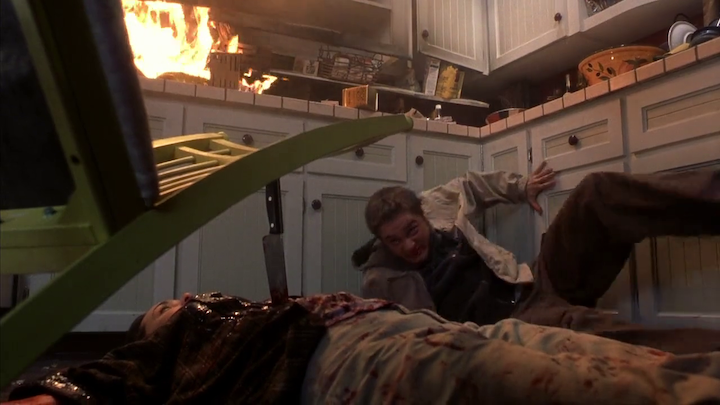
Each film adheres to the same dynamic formula: an outsized opening reel disaster the characters survive, followed by a series of creative, Rube Goldberg like slasher-style deaths of the supporting cast and the eventual heroic victory of the leads…until the final twist, when, thinking they are safe, death gets them anyway. It’s a not so gentle reminder, refined through the cheerily bloodthirsty elan of a horror movie, that no matter how much you try, no matter how much you do, death will get you anyway. You can eat healthy, take no risks, exercise daily, but when your time is up, it’s up. You can only prolong the inevitable.
That kind of pop nihilism can sound bleak, suffocating and distressful, but there is a kind of gnarly grace to it, if you’re willing to embrace it. Horror has always trafficked in death, the threat of it, the doing of it, the aftermath of it. In that regard, FINAL DESTINATION isn’t unique. It’s the fact that it starkly strips it down to the force of death itself, that makes it special. It’s a clear reminder that we all will perish, that we are all in this together. We too shall pass.
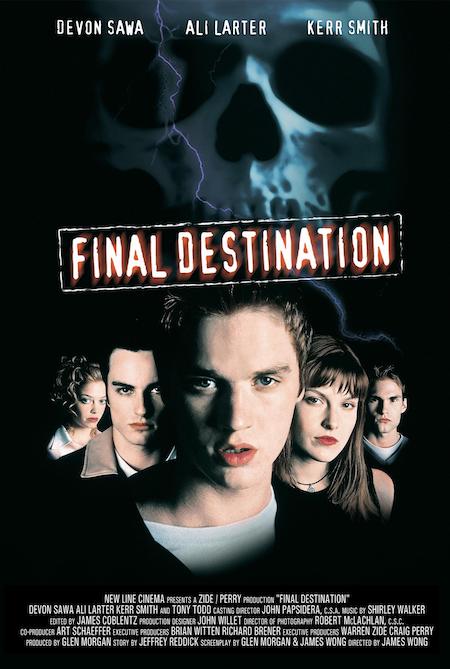
And therein lies the beauty. The opposite of death is life. We will all die, but until that moment, we all are alive. Mortality can come out of nowhere, like a bus splattering a teenage girl. Death has haunted me my entire life, reminding me, from even before I was cognitive of deep, abstract concerns of the ephemerality of existence. The characters in FINAL DESTINATION, in contrast, live blithely unaware of their own mortal selves; death is a thing they know of, as a concept, but not as a tangible and permanent reality. When it falls on their doorstep they spend the entire movie—the rest of their lives—doing anything in their power they can to avoid it, only temporarily successful if they are at all. Their whole life becomes built on simply avoiding death, rather than appreciating life.
We are in the midst of a global crisis of a scale unprecedented in our lives. A massive pandemic is sweeping the world, shuttering life and laying bare the fragility of the existences we have carved for ourselves. People and ways of life are dying, and, sadly, we cannot prevent it—only mitigate it. A collective cloud of anxiety hangs over our heads. I can tell you I am a nervous wreck. I am not afraid of being sick—as I said, I know I’ll be fine—but of being a vector for those around me who are most at high risk. My entire days as of now are me in the constant thrum of anxiety (more so than my usual thrum), alert at the dangers around me, much like Alex as he cottons to Death’s grand scheme, intoned to him at one point by a mortician played by a cameoing Tony Todd. I feel his fear innately in my soul.
But at the same time I cannot just stop living either. At one point in FINAL DESTINATION, Alex afeared of the possibility of dying, holes up alone in a heavily fortified cabin, a prescient scene recalling how we are all now isolated, protecting ourselves. In his isolation, though, he realizes that his classmate, love interest and fellow survivor, Clear Rivers (Ali Larter) is still at risk. He ventures out to save her, putting his own life on the line to protect someone that he has come to care for.
This is not to say that we should ignore quarantine warnings, far from it. But to realize the loved ones we have all around us. To not obsess so much over our own desired immortality but to embrace the essence of life. Alex could have protected himself by hiding in his hovel, allowing Clear to fend for herself. Instead, he opts to live, to live in the moment and to live for someone. He puts his fear of death aside, even at potentially great cost to himself.
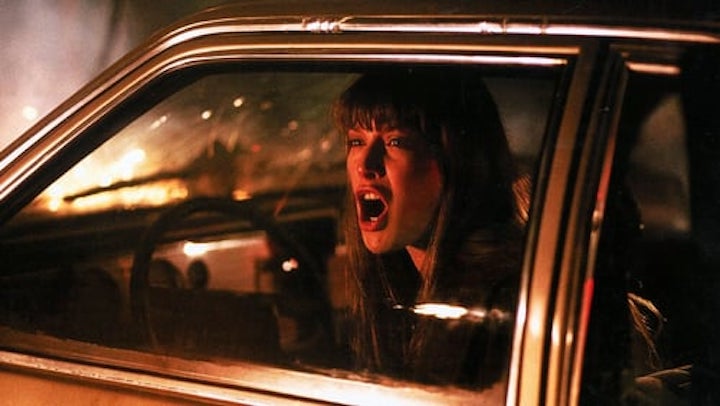
A few years ago, my ideation bloomed into full force again, and I nearly killed myself. I hung an electric cord around a beam and fastened a noose around my neck. I was seconds away from stepping off the back of a couch when my cat began to meow at me from the stairs. Long, intense, unstopping cries. I was about to embrace death, but at the cost of a loved one. His fear and anguish at watching what his human was doing stopped me cold. I couldn’t go through with my attempt.
That memory, alongside the memory of all my other attempts, of those in my life passing away, lives extinguished on mere moments, have been an undercurrent of my entire life. Some people will no doubt recognize that feeling too; for others, it was an alien concept, and may still be as they crowd Disneyland in the midst of Earth’s ravagement. But death is here, and will always be. FINAL DESTINATION‘s lasting impact isn’t in logging truck memes or the way it influenced shoddy ripoffs like TRUTH OR DARE or WISH UPON. It’s in the way it honestly talks about death, in the disguise of a teen thriller. For 20 years, it has been a go-to for me and an odd source of comfort. Because it reminds us of one plain truth: We can’t obsess about death. Even when it faces us, we can only do one thing.
Live.
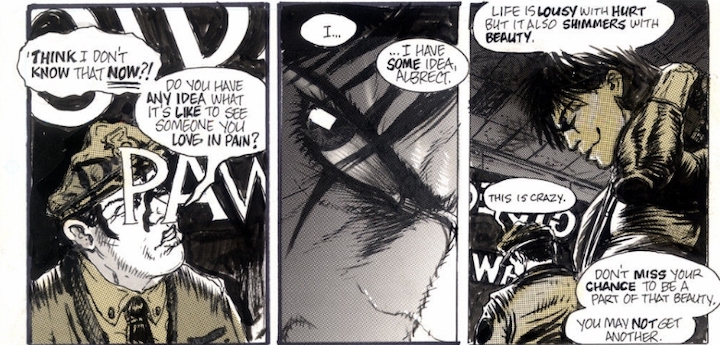
Tags: 2000, Ali Larter, Amanda Detmer, Chad Donella, Daniel Roebuck, death, Devon Sawa, Final Destination, Glen Morgan, James Wong, Jeffrey Reddick, Kerr Smith, Kristen Cloke, Mortality, Sean William Scott, Tony Todd

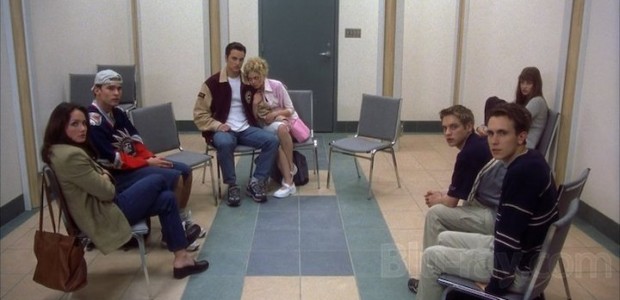
No Comments